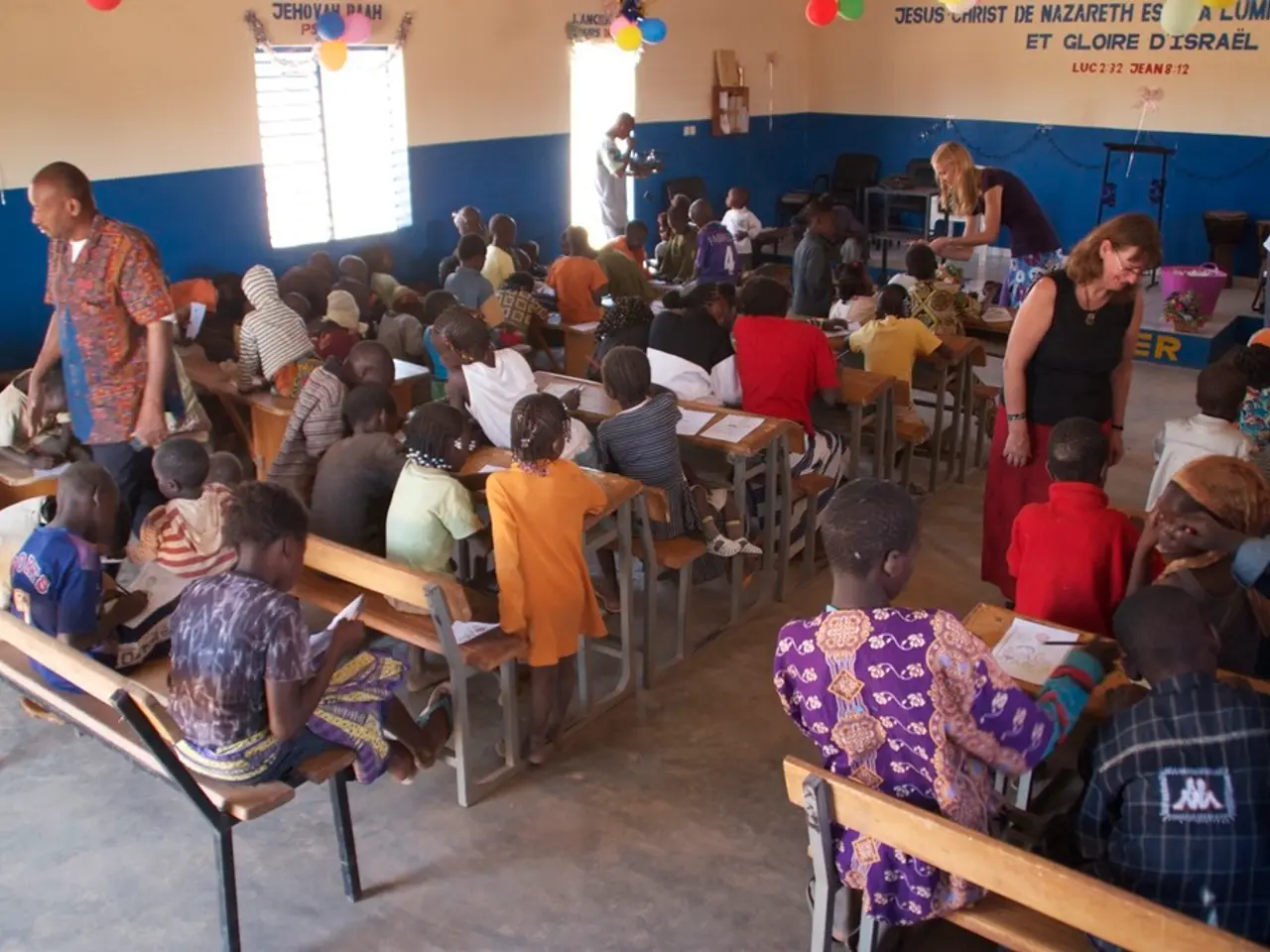Could healthy eating discussions potentially curb the prevalence of childhood obesity?
In an effort to combat the rising issue of childhood obesity, a new digital intervention called Greenlight Plus has shown significant success in preventing obesity in the first 24 months of a child's life. This critical period, as habits are learned and established, has been the focus of the study.
The Greenlight Plus Trial, co-led by Eliana Perrin, a Bloomberg Distinguished Professor of Primary Care, tests the impact of adding an automated digital intervention to traditional pediatric counseling for parents of children from birth to age 2. The study, conducted across a diverse population, including groups at elevated risk for childhood obesity, has proven effective in reducing weight-for-length trajectories and obesity at 24 months.
The digital intervention aims to encourage healthy habits such as drinking water and milk instead of juice or soda, physical activity, and limiting screen time. The intervention is delivered via interactive text messaging and a web-based dashboard, providing personalized health behavior guidance to parents.
The results of the trial indicate that pediatric providers may feel less helpless in addressing childhood obesity with the Greenlight Plus intervention, allowing for more time to focus on other important areas. The intervention has also shown a stronger effect on children from households with food insecurity compared with others, potentially due to teaching parents to avoid overfeeding.
Eliana Perrin envisions future childhood obesity research focusing on changing policies toward improved physical activity, less advertising of unhealthy products, and healthier dietary practices. She hopes for a shift in focus from reactive treatment to prevention of childhood obesity and other chronic diseases.
Regarding scalability, the intervention’s design—using automated digital messaging and web platforms—suggests strong potential for broad, cost-effective implementation across various settings. The trial's success in multiple sites and diverse groups supports the feasibility of expanding this approach beyond the initial study population. The relatively low-cost nature of text-based interventions coupled with positive return on investment prospects further enhances its scalability.
However, while outcomes at two years are promising, more research is needed to confirm sustained long-term effects as children grow older and to evaluate wider application in different healthcare environments or populations. Future studies will be essential to assess durability of impact, cost-effectiveness at scale, and adaptation for various cultural and socioeconomic contexts.
In conclusion, the Greenlight Plus Trial highlights digital interventions as a powerful tool for early childhood obesity prevention with impactful initial results and encouraging potential for scalable, population-wide application. Ongoing evaluation is required to fully determine long-term and broader effects.
It is important to debunk common misconceptions about childhood obesity. Contrary to popular belief, children with obesity are not less intelligent or lazy, and they do not always outgrow their obesity. In fact, over 80% of children with obesity at age 3 never outgrow it. Improved primary care for all, as demonstrated by the Greenlight Plus Trial, helps set a healthier foundation for a healthier America.
- The Greenlight Plus Trial, aimed at preventing childhood obesity, has found success in its initial 24 months, focusing on habit establishment during this critical period.
- The digital intervention, led by Eliana Perrin, encourages healthy habits like water consumption, physical activity, and screen time limits through interactive text messaging and a web-based dashboard.
- The study, conducted across a diverse population, has shown effectiveness in reducing weight-for-length trajectories and obesity in children from households with food insecurity.
- Eliana Perrin envisions future research focusing on policy changes for improved physical activity, reduced advertising of unhealthy products, and healthier dietary practices.
- Long-term effects and broader applications of the Greenlight Plus intervention are to be further evaluated, with future studies essential for assessing durability, cost-effectiveness, and cultural adaptability.




